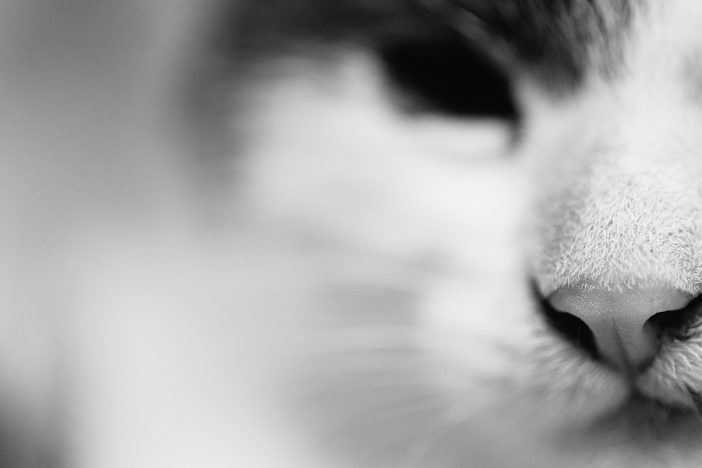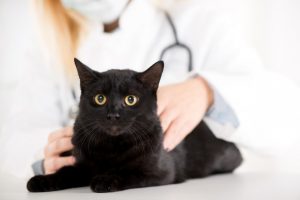
Today, I lied to a client. And I don’t feel bad about it, to tell the truth.
That’s not what I’m like, either the lying or the lack of regret. Like most veterinarians, I believe that telling the truth is an essential part of who I am, and what I do. Being honest is essential to building trust with our clients because their pets, our patients, cannot speak for themselves. We are advocates for these animals, and to accomplish this we must give their owners truthful health assessments and honest options based on our knowledge and experience so they can make informed decisions.
But it’s not just my profession that drives my veracity. My husband says I am the most honest person he has ever met; honest to a fault, sometimes. For me, lying triggers anxiety and sleepless nights.
Usually, sugarcoating the truth is the closest I can get to lying. But that wasn’t the case today.
Miss Midnight, a sweet cat as black as her name suggested and about as old as most cats hope to be – 16 – came in with her owner, Mrs. Johnson. (And, yes, both names have been altered.) Miss Midnight hadn’t eaten much in more than a week, and Mrs. Johnson wasn’t sure the last time she’d seen the kitten drink any water.
The ancient black kitty was skin and bones. Her eyes were sunken in, and she was too weak to stand up. I kept my professional demeanor in place as I observed that she was cold, her gums were pale. Blood tests showed only one abnormality, a marked nonregenerative anemia, which means the bone marrow wasn’t producing the red blood cells needed. Had I seen her earlier, she might have had a chance, and the thought made me sad, and angry. As we often say in veterinary medicine, old age isn’t a disease. The fact is that many things can be treated, and don’t need to be ignored because of an animal’s age.
As I have done so many times, I shared my professional opinion, and then discussed all the options. Mrs. Johnson couldn’t afford to hospitalize Miss Midnight, but she wasn’t ready to say goodbye. We agreed to try 24 hours of supportive care at home to see if Miss Midnight’s condition would improve.
Mrs. Johnson then told me she is a nurse in a home for senior citizens and would have to call in sick to take care of the cat. I was taken aback. A nurse? Working with elderly patients? How could she let this situation go on as long as it had? She surely knew better!
But I kept listening. She told me about Miss Midnight, how her son brought him home when he was a teenager and left her there when he went off to college. Miss Midnight had become her cat at that point, and was very much a part of her family. I could see the love she had for this suffering old kitty, and I could see the guilt on her face as we discussed how sick her cat was now.

That’s when it happened.
Mrs. Johnson asked, “Did I wait too long to bring her in?”
I watched the tears flowing down her face. “No you didn’t wait too long,” I lied. “She is just old.”
And I left it at that.
Why? I’ve thought about that a great deal, especially since I know many may disagree with what I did. The lying, and with my refusing to tell Mrs. Johnson that she was cruel and irresponsible to let her cat get this sick and thin without getting help for her.
I could have been honest and said, “yes, you did wait too long.” I could have then told her that I didn’t think it was right to let an animal get this thin and this sick without getting help for her. But it wouldn’t have changed a thing now, nor was it the best for either of them at this point.
Miss Midnight most likely only has a few days left, and she and her family deserve to cherish the time together. I know that Mrs. Johnson loves her cat, she really does, and I do not believe she should have her final memories of her special kitty tarnished with guilt.
Instead, she will remember how she spent this time hand-feeding Miss Midnight, snuggling with her to try warm her, and doing all she can before she says goodbye to her.
It was the best, most truly humane thing I could offer them, and that’s why I lied.
It’s also why I have no regret.
The views and opinions expressed in this article are those of the author and do not necessarily reflect the position of the DrAndyRoark.com editorial team.
